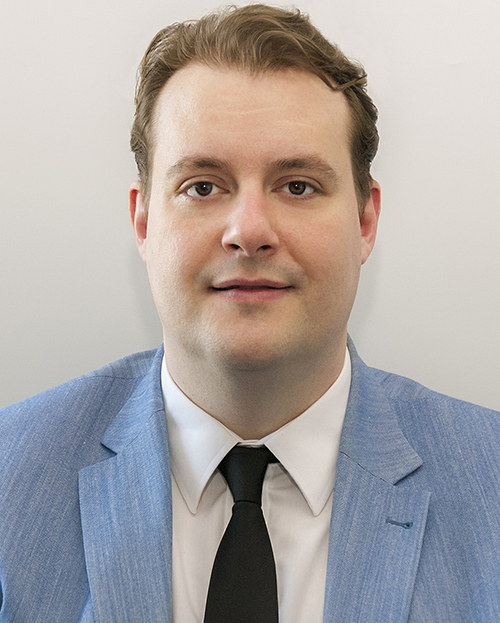Düsseldorf, 07.11.2017
DDZ Researcher Receives 1.5 Million Euros in EU Funding
Dr. Bengt-Frederik Belgardt, deputy director of the Institute for Beta Cell Biology at the German Diabetes Center (Deutsches Diabetes Zentrum, DDZ), has received a Starting Grant of approximately 1.5 million euros from the European Research Council (ERC) for his future work on pathological processes during the development of diabetes. The jury was impressed by his project approach to combat this widespread disease. With the ERC Starting Grant, the scientist intends to investigate the molecular processes involved in the development of type 2 diabetes at the DDZ over the next five years.
Approximately 400 million people around the world suffer from type 2 diabetes, a metabolic disease that is also widespread in Germany. To date, the molecular processes in the cells of type 2 diabetes patients have not been fully elucidated, which is partly the reason why there is still no cure for this disease. “In order to develop better treatment options for diabetes, we need to understand even more precisely what happens in the cells of patients at the molecular level," said Belgardt, who previously conducted research at the University of Cologne and ETH Zurich in Switzerland.
With the grant from the European Research Council, Belgardt and his team hope to gain an understanding of the extent to which and via which processes a chronically too high dietary intake of certain fats can increase the risk of developing type 2 diabetes. Certain ingredients in fat, the saturated fatty acids, are suspected to increase the risk of type 2 diabetes in the event of excessive consumption. It is assumed that these saturated fatty acids are chemically "converted" into other fatty acid structures (so-called sphingolipids) in the cells of type 2 diabetes patients. These modified fats can ultimately interfere with the function of different cell types, such as insulin-producing pancreatic beta cells. In the project, which is now funded by the ERC, Belgardt will investigate how these processes take place in cells of type 2 diabetes patients, which enzymes are involved and whether this can be stopped with the aid of novel drugs.
“Dr. Belgardt's project is important for understanding the molecular processes involved in type 2 diabetes," said Prof. Dr. Michael Roden, board member of the German Diabetes Center. He added: “This could potentially help identify better treatment options for type 2 diabetes patients in the future.”
Bengt-Frederik Belgardt
Bengt-Frederik Belgardt studied biology at the University of Cologne from 2001 to 2006. He then pursued his doctoral studies at the Institute of Genetics of the University of Cologne in the laboratory of Professor Jens C. Brüning, MD , focusing on neural and molecular control of body weight and glucose metabolism. In 2010 he completed his dissertation summa cum laude. Following his doctorate in Cologne, he conducted research from October 2011 to May 2015 at the Swiss Federal Institute of Technology (ETH) Zurich, Switzerland, at the Institute of Molecular Health Sciences in the laboratory of Professor Markus Stoffel, MD, focusing on beta cell biology. Since June 2015 Dr. Belgardt has headed the young investigator research group “Beta Cell Defects” and is deputy director of the Institute for Beta Cell Biology at the German Diabetes Center Düsseldorf. In 2016 and 2017 Belgardt received the Hellmut Mehnert Project Grant of the German Diabetes Society.
Background
The European Research Council awards Starting Grants specifically for innovative and promising research ideas of early-career scientists, who can use the funds to set up their own research group and conduct independent research for five years. The European Research Council, which was established by the European Union in 2007, is the first European funding organization to support investigator-driven frontier research. The Council's objective is to use the ERC grants to promote outstanding scientific research. To this end, the ERC regularly awards research grants that enable the establishment of own research structures over several years. To date, the ERC has supported almost 7,000 researchers at various stages of their careers. In total, the ERC has awarded around 2 billion euros to top researchers in Germany.
The German Diabetes Center (DDZ) is a German reference center for diabetes. Its objective is to contribute to the prevention, early detection, diagnosis and treatment of diabetes mellitus. At the same time, the research center aims at improving the epidemiological data situation in Germany. The DDZ coordinates the multicenter German Diabetes Study and is a point of contact for all players in the health sector. In addition, it prepares scientific information on diabetes mellitus and makes it available to the public. The DDZ is part of the Leibniz Association (Wissenschaftsgemeinschaft Gottfried Wilhelm Leibniz, WGL) and is a partner of the German Center for Diabetes Research (DZD e.V.).
For more information, please contact:
Christina A. Becker
Head, Press and Public Relations
German Diabetes Center (DDZ)
Leibniz Center for Diabetes Research
at the Heinrich Heine University of Düsseldorf
Phone: +49(0)211-3382-450
email: Christina.Becker@ddz.uni-duesseldorf.de
Press contact

Birgit Niesing
niesing(at)dzd-ev.de
+49 (0)89 3187-3971
 |
